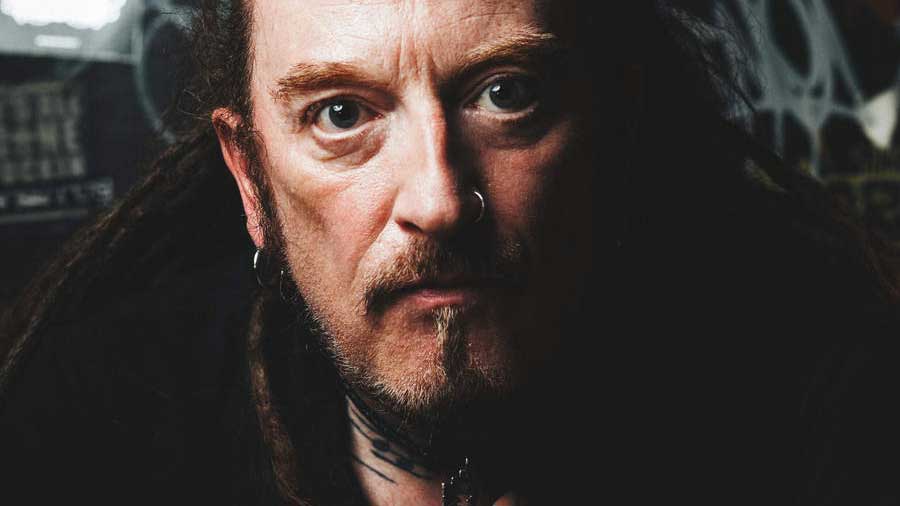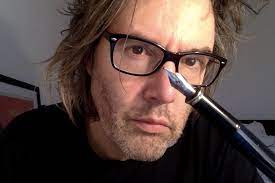
This interview was conducted to mark the 300th issue of Classic Rock magazine, which launched in 1998. The anniversary issue is available to purchase online, and also features interviews with Gene Simmons, Def Leppard, Alice Cooper, Geddy Lee, Justin Hawkins, Rick Nielsen, Slash and many more.
Having played guitar for the Quireboys a decade earlier, Ginger Wildheart has led and been a member of numerous different bands, across a wide variety of genres. The best known of them all is, of course, The Wildhearts, who since the release of last year’s tenth album, 21st Century Love Songs, recently announced a latest hiatus due to “ongoing issues within the band”.
Ginger, who has written for Classic Rock, fills in the 24 years between the magazine’s launch and this development.
Classic Rock launched in 1998. Where were you, post-Wildhearts and waiting for the next thing to begin?
I was bombing around trying to put Silver Ginger 5 together. I went to LA, trying to find musicians. It was a very messy time. I was still very heavily into drugs at the time – crack and freebasing and stuff. I went to the bank, and they said I’ve got thirty-five grand in my account. They gave me a cheque for thirty-five grand, which I bought a house with in the Northeast. A year later I sold the house and smoked it.
The Clam Abuse album Stop Thinking came about when you were in LA.
At the time, everyone in LA was getting fit. So I joined a gym – and I’d never been in a gym before. It turned out that I owed them loads of money; I didn’t realise that it was a payment plan. And it was the Polish mafia that ran this gym. They said they were going to break my kneecaps if they don’t get five grand immediately. So I got straight in touch with [record label head] Dante Bonutto, and said: “Can you give me five grand if I come home and make an album?” And he did, and that eventually turned into Clam Abuse.
You’ve always been out of step with the mainstream, haven’t you?
My timing has always been awful. Now, it looks like I was going against trends, but I just didn’t have a clue how to join trends. There were times back there where I wish I could have done and made some money. Right about 2000, when Slipknot and everything started happening, the last thing people wanted was a kind of a weird, thrash, glam band like Silver Ginger 5, so that was short lived.
You’re constantly moving and creating.
I always have. I’ve just got something in mind and I want to get it, whether it’s a girl, a guitar, a place in the world I think I want to live, and that’ll solve all my problems. It wasn’t until relatively recently that I realised that my problems are that I don’t fix my problems. I just run to the next thing. So fixing myself is what I’m more interested in now.
You hit an extremely rich vein with the three solo albums between 2005 and 2008: Valor Del Corazon, Yoni and Market Harbour.
It was a fruitful time in my life. I had these songs with no idea that they were going to affect people who are going through similar things. And that was one of the turning points, where I realised that maybe this isn’t a hobby any more, maybe there’s a bit of service involved in this as well.
You’re one of few people in these 300th issue interviews who can say they wrote for Classic Rock.
My Secret History Of Rock’n’Roll column. It was great to write about bands like Jason And The Scorchers, Angel, the Good Rats, great bands. It was the Scorchers that showed me that you can mix country western and punk rock. The light bulb went on; you can mix Cheap Trick and Motörhead. And it turned out I could.
You got The Wildhearts back together for 2003’s The Wildhearts Must Be Destroyed album.
How was that? Just miserable. There’s been a lot of dissatisfaction in The Wildhearts. I don’t know why. It was me, Danny, Stidi and CJ, and they complained the whole time. We went on tour with The Darkness in America, and it was still miserable!
When we got back together for The Renaissance Men, we made a promise to look after each other. But communication’s always been a problem in The Wildhearts. It worked for a while, and then everyone just went back to getting into their own little problems. And it went the exact same way it always goes with that band.
But you endure, happily.
What I do is music. It’s the only time I feel like me. It’s a comfort. It’s a therapist. It’s a best friend. It’s my medicine.
Ginger’s new album The Pessimist’s Companion is out now via Wicked Cool Records.

